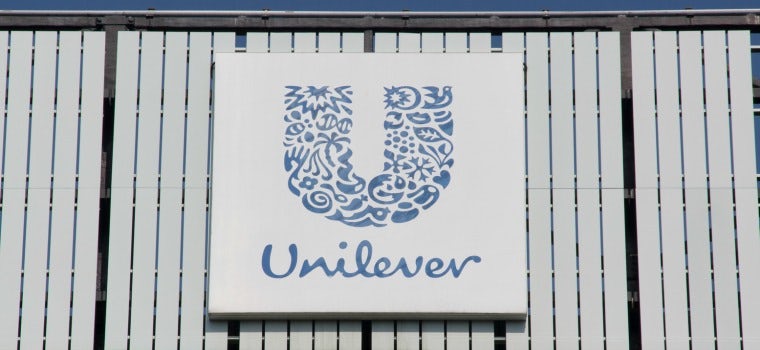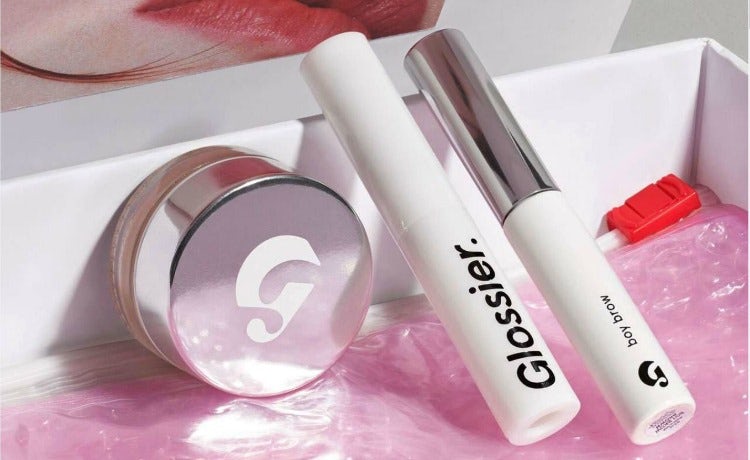The five challenges facing Unilever’s new CEO
As Paul Polman retires after a decade at the helm, his successor is facing a series of challenges to growth from the battle for talent to questions over sustainable business and the growing threat of disruptors and direct-to-consumer brands.

Unilever CEO Paul Polman’s decision to retire after a decade at the helm comes amid mounting challenges for the FMCG sector as consumer trends shift and growth becomes increasingly hard to find.
A look across the sector shows that a number of the world’s biggest companies have changed the person at the top in the last couple of years, from PepsiCo to Mondelēz, Nestlé to the Kellogg Company. That comes amid a background of sluggish growth in the consumer goods sector and mounting competition from newer and smaller brands.
All eyes will now turn to Alan Jope, a marketer by trade (unlike Polman who was a finance man) who most recently headed up its beauty and personal care business. He will need to navigate economic and political uncertainties, disruptor threats and Polman’s legacy while maintaining profit targets and boosting growth.
Below are the five key challenges Jope will face as he takes on his new role on 1 January.
Polman’s sustainability legacy

After 10 years as CEO it’s a shame Polman’s legacy has been tarnished by the botched attempt to consolidate the company’s HQ. Although Unilever is adamant this is not the reason for his retirement it no doubt accelerated his departure and many will remember Polman for his failed attempt to change the company’s dual-ownership structure and move its HQ to the Netherlands.
A longer lasting legacy will be his commitment to sustainability, which was a key focus for Polman throughout his tenure as CEO. The 62-year-old has consistently advocated for a kinder capitalism and under his guidance the company created the Unilever Sustainable Living Plan in 2010.
The plan set out ambitious targets on health, environment and work, including halving the company’s water consumption by 2020.
That deadline is now looming. Unilever has achieved some of its promises already but some are further off, for example the company’s current water impact per consumer use has only reduced by around 2% since 2010.
Unilever has constantly championed the business impact of sustainability, not just its social and environmental impact. But the attempt by Kraft Heinz to buy Unilever in 2017 show it has not fully won that argument.
Jope will no doubt have his own passion points, but environmental promises need to be met or exceeded in order to keep consumers on side. More than ever the public are scrutinising company’s sustainable decisions and with two years to go, Jope will need to push the company to ensure it meets every target promised.
Maintaining prices and margins
FMCG is currently navigating a difficult period with Unilever, Procter & Gamble, Mondelēz and Nestlé all shifting strategy and upping prices.
There a number of key reasons for the decision, namely rising commodity costs, but the next quarter will see consumers start to feel the effects of pricing changes.
Previous pricing increases have been gentle and this change in strategy will be a test of brand power. As companies fight to retain loyalty amid the rise of Amazon and competition from new entrants, price increases could potentially backfire.
Jope will understand the importance of marketing in this potential pricing battle but will need to be careful that it doesn’t enter into a promotions war in which everyone will lose.
With Brexit and other political uncertainties on the horizon, consumers could become more careful with their spending again and Unilever will need to be mindful of the balance between value and volume sales.
READ MORE: FMCG giants test their pricing power
Disruption by direct-to-consumer

The threat of direct-to-consumer has been discussed greatly across marketing. At times this may have felt overblown but the explosion of brands such as Glossier and Harry’s and their effect on big brands shouldn’t be underestimated.
Beauty brand Glossier is only four years old but has developed a cult-like status. Despite having just a handful of shops alongside its online presence it is a valued at $390m and continues to grow.
Unilever knows this and bought subscription shaving brand Dollar Shave Club in 2016 in part to better understand how these subscription businesses work. But it will need to develop its own brands and reshape the business models of its core products in order to keep up.
As the current president of Unilever’s beauty and personal care division Jope will be well versed in the threat of direct-to-consumer but he will need to apply this knowledge across the business.
READ MORE: How direct-to-consumer brands are reshaping marketing
Navigating crowded categories
Overcrowded categories is not a new issue but is becoming more pressing. Retailers are putting more emphasis on own-brand products and bigger brands are now having to compete with cheaper rivals.
Aldi’s own makeup and skincare range has been heralded by the media, with Aldi’s £3.99 Miracle Cream (meant to rival Elizabeth Arden’s cult Eight Hour Cream) selling out across the country.
Jope will need to ensure that Unilever’s marketing continues to engender loyalty among consumers so that they don’t defect to cheaper options.
A move out of food, where own-brand sales are on the up and sales growth is slow, would make sense. Having already disposed of its margarine business, other areas of food will surely come under the microscope.
Competition for marketing talent
Hiring top talent hasn’t tended to be an issue for Unilever, with its breadth of brands and reputation ensuring it is a leading choice for graduates. However, in a fast-paced environment FMCG’s dominance is waning as young marketers begin to choose hands-on learning over legacy.
The company has always been a great learning ground but it’s rigid structure can be off-putting for those who want a range of skills and. And working for Unilever doesn’t have the ‘cool factor’ that saying you work for Google and Apple does.
As Jope proves – he joined in 1985 on a marketing grad scheme – Unilever still favours the traditional path of promoting from within. As more and more young people want to have a diverse CV, including smaller start ups and big business, it might have to adapt.
Tech and finance have been cited as two sectors that are rivalling FMCG as top spots for grads and Jope will need to promote the company as a dynamic fast-paced leader to keep attracting the very best graduates.
READ MORE: The big debate: Is FMCG still the best learning ground for marketers?
Ultimately, Jope is taking over in a period of great uncertainty both in the world and FMCG. Big brands’ dominance is arguably more under threat than ever before and people will be looking to the former beauty boss to stamp his mark and provide forward-looking leadership to maintain the company’s status as a leader for years to come.







